The Battle of Kosovo, also known as the Battle of Kosovo Polje, which took place north of Prishtina on the morning of 15 June 1389 (28 June old style), was a major event in the Ottoman conquest of the Balkan Peninsula. Much of the factual history surrounding the battle has, however, remained obscure.
According to tradition, Sultan Murad I (r. 1359-1389), who had been occupied pacifying Asia Minor, returned to the Balkans and brought together a huge coalition of forces from among his southern Serbian, Bulgarian and Albanian vassals, many of whom were Christians, such as Constantine Dejanovich and the famed Serb leader Marko Kraljevich, enemy of Lazar. The opposing forces under Prince Lazar of Serbia und King Tvrtko of Bosnia were a coalition including Bosnian troops under Vlatko Vukovich, the Vlach contingents of Voyvode Mircea, the troops of Lazar’s son-in-law Vuk Brankovich and Albanian forces under George Balsha and Demeter Jonima.
Ottoman forces won the day and both leaders, Lazar and Sultan Murad, met their deaths. According to legend, Sultan Murad was assassinated. One version has it that the knight Milosh Obilich or Kobilich, taunted and insulted by Vuk Brankovich, slipped heroically into the imperial tent and stabbed the sultan to death, before being killed by the guards.
The Battle of Kosovo has been a central theme of southern Balkan legendry over the centuries. The splendid Serb songs of the battle are well known. There are, however, also songs preserved in the collective memory of the Albanians, that are less known in the world at large. Some of these Albanian Songs of the Battle of Kosovo are relatively complete, whereas others are sketchy. A representative sample of them is presented here in English.
Here is a synopsis, by Anna Di Lellio, of the legend that serves as a basis for the Songs of the Battle of Kosovo:
The epic tells the story of Murat, son of the first Ottoman sultan Ohran. Murat is a pious man who lives his life according to the law of Islam. One night an unsettling dream wakes him up. He tells his mother that he has seen two eagles perched on his right shoulder, stars fall to earth and the sun and the moon plunge into the ocean. The court interpreter reads this as an announcement of battle and death: the eagles have come to gather the army and conquer Kosovo, where Murat and many of his men will find their death as martyrs.
The Sultan calls on all towns to contribute troops for his campaign, and 70,000 answer the call to fight. He then gives anyone who does not have the heart to leave his family behind, or is not pious enough, permission to go back home. Only half of the men start the long march to Kosovo.
Upon reaching the ocean, the Sultan prays for God to separate the water and let the army cross on dry land. Once on the other side, again he addresses his army. He calls once again upon his men to leave behind all regrets or go back home, but also to behave like religious men or abandon the mission. 12,000 renew their vow to fight to their deaths and make their way to Thessaloniki and Skopje. There, they stop by a river to rest.
The next battle at the Kaçanik Gorge takes a heavy toll. Dust and smoke make it impossible for anyone to see the battlefield. Only when the Sultan prays to Allah does the air clear, making it possible to count the dead. Vowing vengeance, the Sultan promises that he will make his men wade knee-deep through a river of enemy blood. He then addresses the troops for the third time and asks whether anyone committed an impious act, thus causing the downfall.
When a soldier confesses to having plucked an apple from a tree, the Sultan redirects his army back to the river in search of the owner of the orchard. The soldiers must ask for his forgiveness or give him a monetary compensation. It turns out that the owner does not want any money, but asks to be appointed Grand Vizier, a demand that the Sultan accepts. The soldiers ready for battle again by performing ablutions and prayers. Arriving in Golesh, they find no water to assuage their thirst. The Sultan asks God for help, and when he strikes a boulder with his fist, water pours out copiously. On the next battle in Ferizaj, God answers the Sultan’s prayers again and makes him victorious.
Once in Prishtina, Murat sees seven fortified castles on the mountain of Çiçavica. He learns from the Grand Vizier that seven bailiffs live there and are always at war with each other. Then, he sends the local lord Millosh Kopiliq a message, in which he demands that all the keys of the castles be surrendered in order to avoid battle. Kopiliq is at first uncertain of what to do. When his wife tries to reassure him that the Sultan would not harm them, he loses his patience, punches her in the jaw, and breaks her teeth. He then sets out to reach Peja and talk to the king.
The king answers the request coming from the Ottoman camp with a vow of defiance. He orders Kopiliq to send thirty maidens to the enemy camp to distract the soldiers and spy on them. Contrary to expectations, the maidens are not robbed or molested; they are given hospitality as the Sultan has ordered. Back home to report to Kopiliq, they tell him of the good reception they have enjoyed, but also of the strength of the enemy army, unmatched by their own. Upon hearing this news, Kopiliq decides that the information needs to be dramatically changed in order not to demoralize the king into surrender. He orders the maidens to complain about mistreatment and describe a weary Ottoman army, struck by the plague.
That message inevitably provokes the king to prepare his army for battle. Kopiliq asks for time and announces his plan to meet the Sultan alone and either establish an allegiance between equals, or kill him. When he reaches the Sultan’s tent, Kopiliq tells the sentries that he wishes an audience and is let inside.
The Sheh Islami advises the Sultan not to give the visitor his hand, but rather kick him and make him grovel at his feet. That decision seals his fate. Kopiliq stabs Murat with his dagger, kills him, and flees the scene. Many Ottoman soldiers try to capture him but to no avail, till they meet an old Slav woman, who reveals the secret of Kopiliq’s seeming invulnerability: the metal armour protecting both the warrior and his horse, whose key lies hidden in Kopiliq’s whiskers.
Following the old woman’s advice, the soldiers lay their sabres on the ground, slash the horse’s ankles, and capture Kopiliq. He is about to be decapitated when he is granted his last wish: he asks for the old woman to be brought to him, so he can tell her of a well-paid job to be done on his behalf. As she approaches, Kopiliq sinks his teeth into her and flings her miles away.
When the soldiers decapitate him, Kopiliq tucks his head under his armpit and flees in the direction of Salabanj. Spotted by a girl who is washing garments in the river with her mother, he drops his head. Before dying, he curses the two women, “Headless I, may you be eyeless!” and blinds them. Had the priests gathered to mourn him managed to build a church before dawn, Kopiliq would have had a chance to come back to life. They almost succeed, but a tile is missing when the rooster crows. Kopiliq is buried where he has fallen, and water with healing powers springs miraculously from this site.
The news of the Sultan’s death reaches the court. His mother curses Kosovo and its people, and then dies heartbroken. Back in Kosovo, people mourn the loss of their homes. A mother and her daughter fleeing Kosovo sigh that they will only return when the Turks are defeated.
[The songs presented here are taken from the volume: Anna Di Lellio: The Battle of Kosovo, 1389, an Albanian Epic. Translations by Robert Elsie. ISBN 978-1-84885-094-1 (I.B. Tauris, in association with The Centre for Albanian Studies, London 2009) 199 pp.]
Songs of the Battle of Kosova of 1389
Version One, published in 1923 by Gliša Elezović
| Once there was a Sultan Murat. |
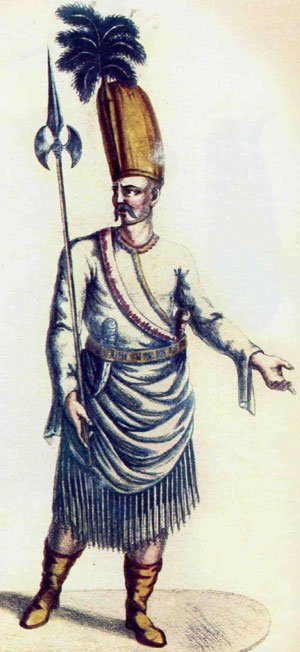
30 | All four of them were awakened, |
[Recited by Hamzë Xhemë Bojkoviqi, also known as Ut Bojko, a rebel from Dërvara near Vushtrria, and first published by Gliša Elezović as “Jedna arnautska varianta o Boju na Kosovu,” in: Arhiv za arbanašku starinu, jezik i etnologiju, Belgrade, 1 (1923), p. 54-67. Translated from the Albanian by Robert Elsie.]
Songs of the Battle of Kosova of 1389
Version Two, recorded in 1931 by Margaret Hasluck
| Once there was a Sultan Murad |
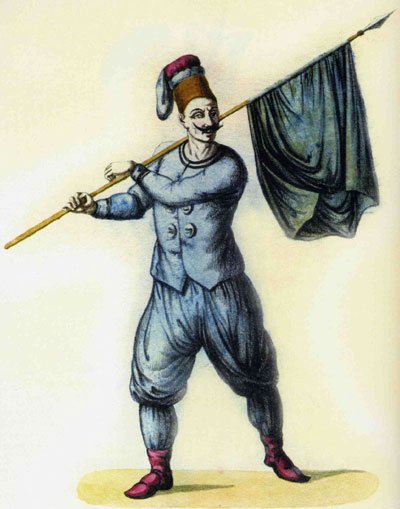
30 | Summoned, called the Grand Vizier, |
[Recited by Mehmet Haliti from Suhogërlla near Peja. Recorded by Margaret Hasluck in 1931 and published as “An Albanian ballad on the assassination in 1389 of Sultan Murad I on Kosovo Plain” in: Gaster Anniversary Volume, in honour of Haham Dr. M. Gaster’s 80th Birthday, edited by Bruno Schindler in collaboration with A. Marmorstein (London: Taylor’s Foreign Press, 1936), p. 210-233.Translated from the Albanian by Robert Elsie.]
Songs of the Battle of Kosova of 1389
Version Three, recorded in 1937 by Albert Lord
| When the sultan went to bed he |
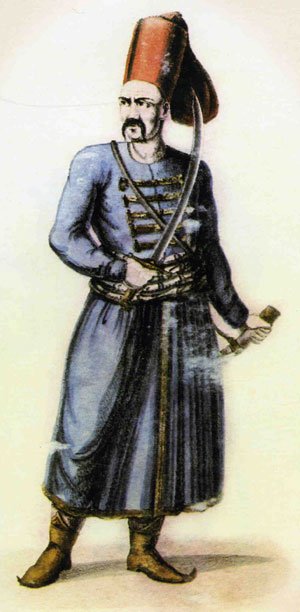
30 | Those who had none, would receive some. |
Songs of the Battle of Kosova of 1389
Version Four, published in 1952 by Anton Çetta
| Once there was a Sultan Murat, |
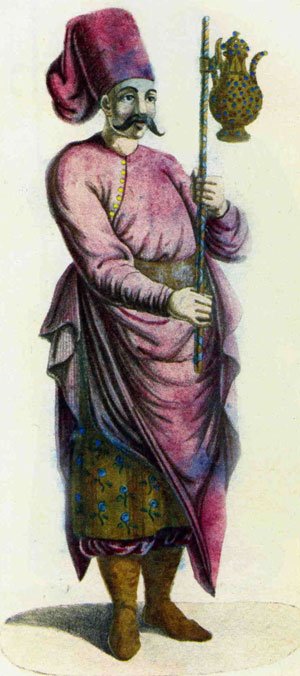
30 | To their feet arose the nobles, |
[Recited by Rrustem A. Kabashi from Polac in Drenica. Published in: Vojislav Dančetović, Anton Çetta & Kadri Halimi (ed.): Kangë popullore shqiptare të Kosovës-Metohis. Bleni i dytë. Prishtina: Mustafa Bakija, 1952, p. 15-21. Translated from the Albanian by Robert Elsie.]
Songs of the Battle of Kosova of 1389
Version Five, recorded in 1954 by Anton Çetta
| Praise be to the Lord Almighty, |
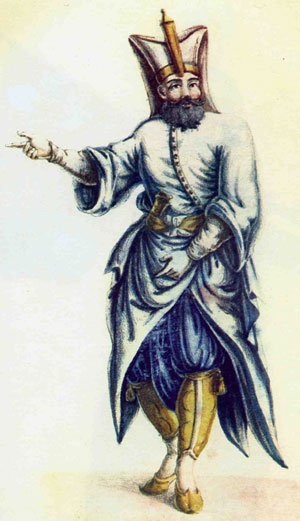
30 | “Mark our words, king, by your eyelight, |
[Recited by Halim Dauti (b. 1889) of Vllahia north of Zveçan, in August 1954. He learned this song from Maliq Zhabari who died about 1939. Published by Anton Çetta in: Gjurmime Albanologjike, Prishtina, 1, 1962, p. 263-275. Translated from the Albanian by Robert Elsie.]
Songs of the Battle of Kosova of 1389
Version Six, recorded in 1954
| Once there was a Sultan Murat, |
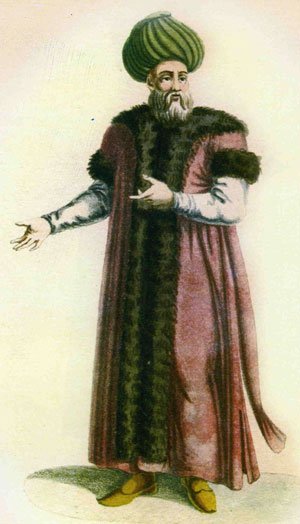
30 | Full twelve thousand men he mustered. |
[Recorded in Karaçeva near Kamenica in 1954. From Këngë popullore historike, vol. 1, No. 5, Prishtina: Instituti Albanologik 2007, p. 73-75. Translated from the Albanian by Robert Elsie.]
Songs of the Battle of Kosova of 1389
Version Seven, published in 1955
| Once the sultan had a dream that |
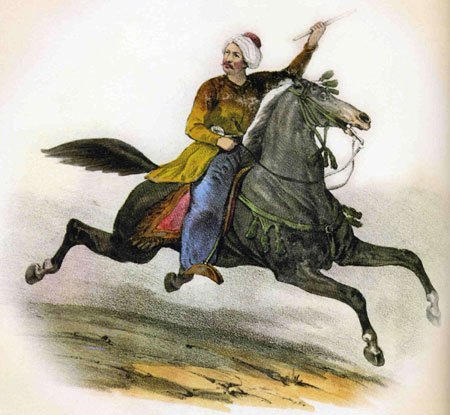
30 | “Take your winding-sheets for it’s |
[Recorded in Rahovec in 1955. From Këngë popullore historike, vol. 1, No. 4, Prishtina: Instituti Albanologik 2007, p. 66-72. Translated from the Albanian by Robert Elsie.]
Songs of the Battle of Kosova of 1389
Version Eight, published in 1998
| Murat the First sits with his legs crossed. |
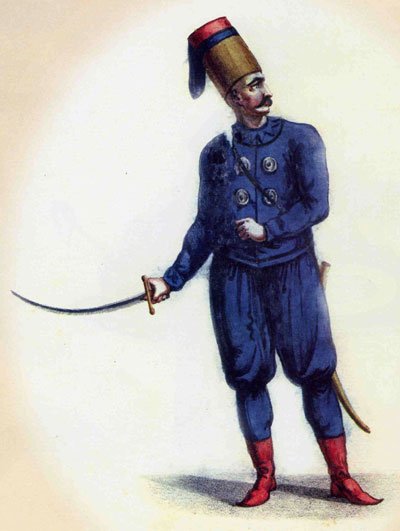
10 | Your advance was ne’er impeded, |
[Recited by Sali Mani of Tropoja. Recorded in Shkodra in 1998. From Këngë popullore historike, vol. 1, No. 6, Prishtina: Instituti Albanologik 2007, p. 76-77. Translated from the Albanian by Robert Elsie.]